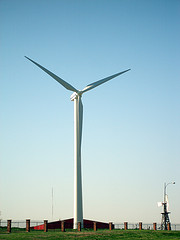State Conservation Centers Developed by Resources First Foundation
By: Amos S. Eno
Posted on:04/29/2011One-Stop Shop Sites for Landowners in Individual States: the Value Added
In addition to the Private Landowner Network, or PLN, we at Resources First have developed four state or regional websites since our founding:
Some people might wonder about the need for state sites, given that our PLN site is so exhaustive. In fact, with each new state we work with, we are learning from state agencies and partners about unique attributes, programs, and initiatives that are missing from PLN. The state sites provide additional tools, and more exhaustive sources of information on everything from agritourism to consulting zoologists. But that is not all. Farmers looking to increase their incomes can find information on Community Supported Ag, Organic agricultur

e. They can also use our site as a means of reaching out to customers by requesting listings for their business, whether it be farmhouse stays or specialty you-pick-em crops.
Since it’s the month of April, I should also mention our estate planning and tax advice listings. Available through out
Conservation Tax Center, our database of attorneys and consultants is linked to each state site we develop and augmented with more local listings. Landowners who want to save money on energy can find clean fuels (market and fuel availability information), and green building.
The Value Added of Our State Conservation CentersIn addition to all of the above and linkage with datasets contained in the Private Landowner Network, our state websites provide the following value added:
- a far more robust database of local contacts;
- a comprehensive list of state conservation and cost-share granting programs; [LINK]
- combined searchable and georeferenced listings of resources from myriad state agencies - for example statewide listings of camp sites available from state & national forests, state & national parks, and local privately owned sites; ditto agritourism opportunities, etc.
- inclusion of lead state agency contacts in the yellow pages database;
- inclusion of state-developed or locally pertinent management guides in a list of downloadable resources for landowners;
- the ability to form an internet partnership, which would allow the RFF site to display pertinent state databases (such as foresters) directly on the RFF site and allow the state agency to display the RFF map and geo-referenced datasets on the agency website;
- the opportunity for state agencies and stakeholder groups to aid in shaping, prioritizing, and guiding the information to be highlighted on the website;
- an increase in “link-backs” from the RFF state sites to business listings and state agency programs, which given RFF websites’ high search engine visibility, likely leads to an increase in search rank as well as traffic to local business and state agency websites;
- an increase in trust, access to useful information on improving stewardship, and the ability to facilitate local business transactions among landowners and service providers in the state - the ultimate goal of improving landowner stewardship.
If you have not seen our state websites, I encourage you to take a look. Send us your feedback. Send us your business listings (a link is provided on each site, just as it is on the PLN website). If you have an interest in developing a site within your state, contact me. If you have a business that serves our private landowning constituency and would like to sponsor our sites,
contact us!
We
always welcome feedback from our customers.
 Sign In
Sign In
 Sign In
Sign In
